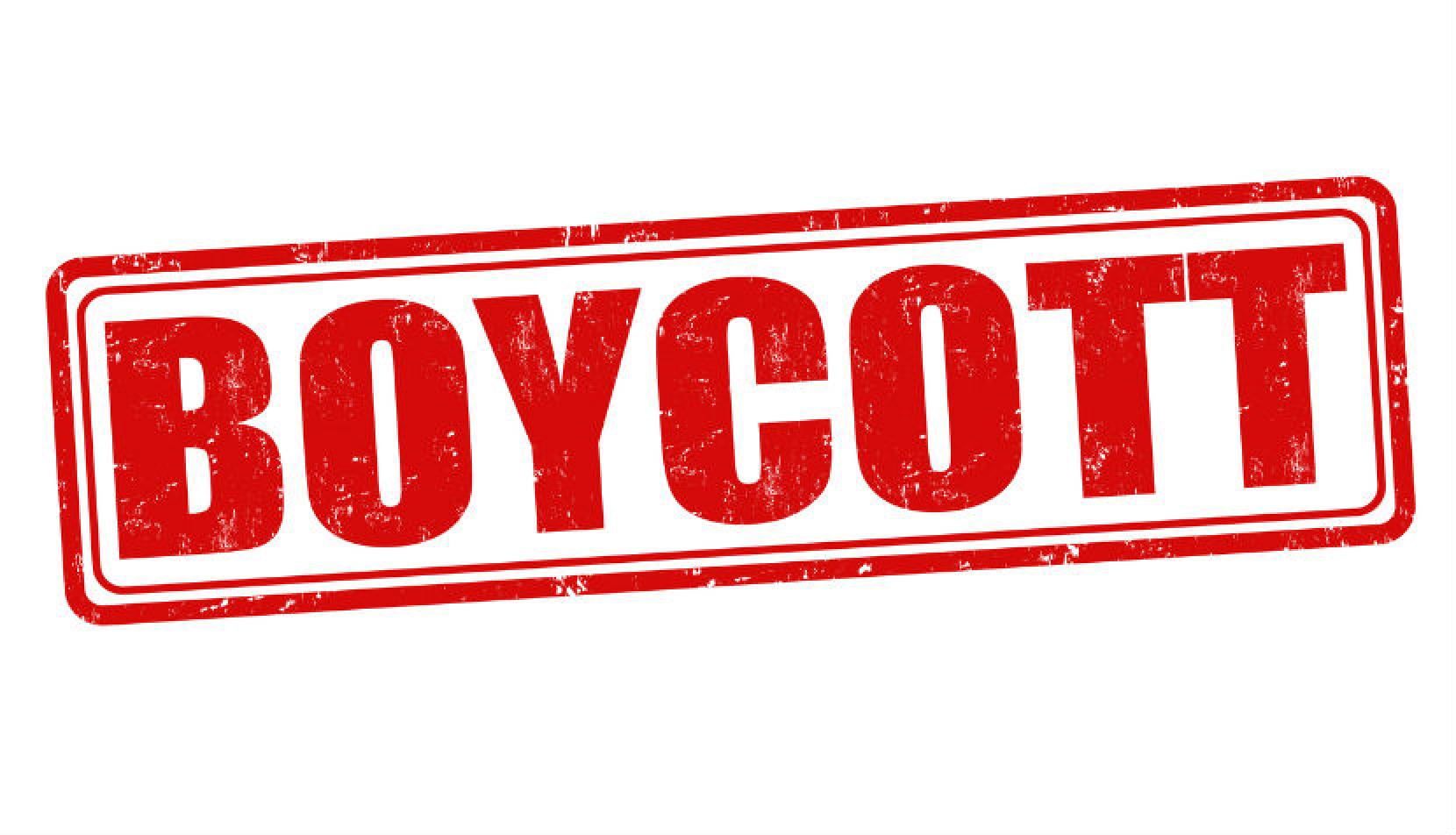
DALE SPRUSANSKY
“Boycott,” directed by Julia Bacha and produced by Suhad Babaa and Daniel J. Chalfen, debuted at the NYC DOC film festival on Nov. 14, 2021. (WWW.THEBOYCOTTFILM.COM)
Washington Report on Middle East Affairs, January/February 2022, pp. 59-60
Films
IF AMERICANS THINK Israel is just another foreign policy issue, they are decidedly mistaken. The new film “Boycott,” directed by Just Vision’s Julia Bacha, catalogues how the contentious debate surrounding U.S. policy toward Israel has come to jeopardize the First Amendment rights of all Americans.
In recent years, 33 states have passed bills that in some way regulate the extent to which individuals and private businesses can criticize Israel, especially as it relates to the non-violent Boycott, Divestment and Sanctions (BDS) movement. The film tracks the legal efforts of three very different people challenging the constitutionality of these laws: Alan Leveritt, the founder and publisher of the Arkansas Times; Bahia Amawi, a child speech pathologist from Texas; and Mikkel Jordhal, an activist and attorney from Arizona.
The power of “Boycott” rests in its masterful use of these three cases to demonstrate how anti-BDS laws jeopardize the rights of everyday Americans, regardless of their beliefs.
Leveritt is the perfect case study of this reality. He thought very little about Israel until he was asked to sign a government document affirming his newspaper would not boycott Israel. Despite his agnosticism on the politics of the issue, he refused to sign the pledge on principle. “Israel has no real bearing on Arkansas,” he says in the film, pointing out the absurdity of the state legislature passing restrictive laws regarding criticism of the foreign country. “The state has no business getting involved.”
Amawi, on the other hand, is a Palestinian American who knows well the dynamics of the Israel-Palestine “conflict.” Her views were never the focus of public scrutiny until she declined to sign an anti-BDS pledge the state required her and other public schools employees to endorse. As a mother, she felt compelled to show her children the importance of standing up for what is right, so she sued the state with the assistance of the Council on American-Islamic Relations (CAIR).
Jordhal was prohibited from giving legal advice to prisoners as a result of his refusal to comply with Arizona’s anti-BDS law. A former activist against apartheid in South Africa who has seen firsthand the reality on the ground in Palestine, he simply could not comply with the law.
Beyond following these cases, “Boycott” offers a plethora of information as to how pro-Israel networks in the U.S. operate. The film openly discusses the power of the Israel lobby, while also leaning heavily into cultural explanations for Zionism, such as Evangelical Christianity. In fact, the film begins with Arkansas State Senator Bart Hester (R) explaining how his religious convictions led him to introduce the state’s anti-BDS bill. None of this background is particularly groundbreaking to those in the know, but it serves as a solid lay of the land for neophytes.
This approach is understandable, as “Boycott” is ultimately a broad but pressing warning against ceding American values to any cause. In violating the precedent set by NAACP v. Claiborne Hardware Co. in 1982, which upheld the rights of Blacks to engage in boycotts as part of their struggle for civil rights, anti-BDS laws jeopardize a fundamental First Amendment right. This, the film makes clear, is grounds enough to vociferously oppose such laws.
The trickle-down effect of these laws is evident in the film. The Arkansas Times, a free local newspaper, is forced to surrender critical advertising revenue from state-funded institutions due to its failure to comply with the anti-BDS law. Amawi is forced to halt her work in schools, even though she is the only speech pathologist certified in Arabic in her school district. Meanwhile, prisoners in Arizona lose access to Jordhal, a trusted confidant and ally, due to their state’s anti-First Amendment law.
Worse yet, the film shows how anti-BDS bills have served as a precedent to target individuals and corporations for their beliefs on other matters. For instance, Texas used the law as a template to bar the state from doing business with those who boycott or divest from fossil fuels or the gun industry.
While the film leaves viewers to grapple with the ramifications of Israel’s assault on free speech in the U.S., it does end on a hopeful note, showing all three plaintiffs celebrating court rulings in their favor. It should be noted the Arkansas case is being appealed, and Leveritt told the audience at the film’s Nov. 14 premiere at New York City’s SVA Theatre that he is concerned the court will reverse the prior favorable decision.
Regardless of legal outcomes, “Boycott” puts Americans of all stripes on notice: Abrogating the First Amendment for any cause is a slippery, dangerous slope.
—Dale Sprusansky



